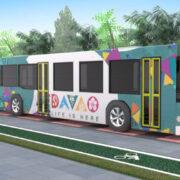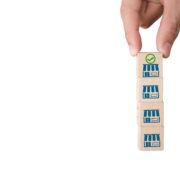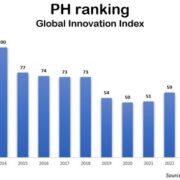
The Asian Development Bank (ADB) on June 29, 2023 approved a $1 billion loan to help establish a city-wide public transport project in Davao City, the first project in the country to deploy electric bus fleets at scale in support of the Philippines’ efforts to reduce greenhouse gases and promote climate action.
The Davao Public Transport Modernization Project, ADB’s largest road-based public transport project in the Philippines, is expected to serve as a pilot for overhauling the country’s public road transport system. It will support the procurement of a modern fleet comprised of about 1,100 electric and Euro 5-standard diesel-fueled buses with operations managed by the private sector under performance-based contracts. The new fleet is expected to reduce 60% of annual greenhouse gas emissions from public transport in Davao City, the country’s third-largest city by population.
“The project is set to transform the quality of Davao City’s public transport and support the city’s rapid economic growth with a low-carbon and climate-resilient bus system,” said ADB Senior Transport Specialist for Southeast Asia Shuji Kimura. “Not only will this support the Philippines’ climate goals, but it will help to improve the lives of vulnerable populations especially women and the young who use public transport daily.”
The project will service about 800,000 passengers per day. It also includes the construction of around 1,000 bus stops with bright lighting and shelters, 5 bus depots and 3 bus terminals, and provide bus driving training for the new system. The project will upgrade the city’s public transport experience via an intelligent transport system that includes a bus location system, automatic fare collection systems, and Wi-Fi connectivity in buses, terminals, and depots.
Based on extensive consultations with government and community stakeholders, the project will include a social development program to mitigate any adverse impacts and risks related to the restructuring of Davao City’s transport sector. The assistance will include livelihood opportunities for affected public utility jeepney drivers, operators, and allied workers and their families, among others.
The ASEAN Infrastructure Fund is cofinancing the project with a $10 million loan under its ASEAN Catalytic Green Finance Facility (ACGF). The Green Climate Fund is providing a $50 million loan under the ACGF’s Green Recovery Program. Both facilities are administered by ADB.
Technical assistance of $1 million will also be delivered to support the Department of Transportation and the Davao City local government in developing staff capacities to oversee bus operations and overall project implementation.
Since 2015, ADB has provided project preparatory technical assistance to help Davao City plan for the new bus system, including a capacity development program and a social development program. ADB’s Infrastructure Preparation and Innovation Facility supported the government in preparing the project, including identifying the location of facilities, on-site surveys, designs and specifications, consultation with stakeholders, and procurement support.
ADB is committed to achieving a prosperous, inclusive, resilient, and sustainable Asia and the Pacific, while sustaining its efforts to eradicate extreme poverty. Established in 1966, it is owned by 68 members—49 from the region.
_
About ADB
The Asian Development Bank (ADB) is committed to achieving a prosperous, inclusive, resilient, and sustainable Asia and the Pacific, while sustaining its efforts to eradicate extreme poverty. It assists its members and partners by providing loans, technical assistance, grants, and equity investments to promote social and economic development.






